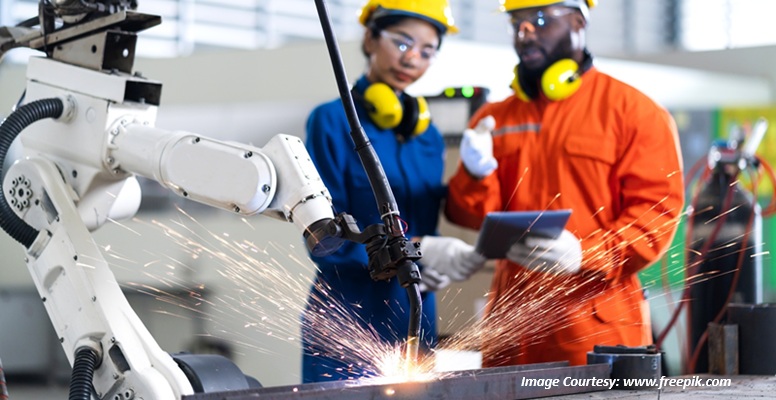Schedule a Call Back
AI-Powered Welding Robots setting a new standard in Top-Tier Automotive Plants
 Articles
Articles- Jul 17,25

Related Stories

India’s Top 100 Engineering Companies 2025 by Smart Manufacturing & Enterprises
FY25 unfolded against a challenging external setting. Despite the global headwinds, India posted real GDP growth of 6.5 per cent in FY2024–25. In this edition, Smart Manufacturing & Enterprises (S..
Read more
Manufacturing, infrastructure growth to drive India’s bearing market
Global bearing demand is accelerating on the back of Asia’s industrial expansion. India is set to record robust gains driven by manufacturing and infrastructure growth.
Read more
How AI is transforming smart manufacturing and unlocking new industrial efficiency
Balaji Krishnamoorthy, Executive Vice President, Findability Sciences, outlines how AI is reshaping smart manufacturing, boosting efficiency, enabling predictive insights, and driving faster, data-l..
Read moreRelated Products

Automotive Oil Pump
Kalpak Auto Pvt Ltd offers a wide range of
automotive oil pump.
Tata Motors unveils facilities for development of Hydrogen propulsion tech
Tata Motors, India?s largest automobile company, unveiled two state-of-the-art & new-age R&D facilities for meeting its mission of offering sustainable mobility solutions. The unveilings constitute of Read more
Tata Motors plans petrol powertrain for Harrier and Safari SUVs
Tata Motors is in the process of developing a new petrol powertrain for its premium sports utility vehicles, the Harrier and Safari, as confirmed by a senior company official. Currently, these models Read more















